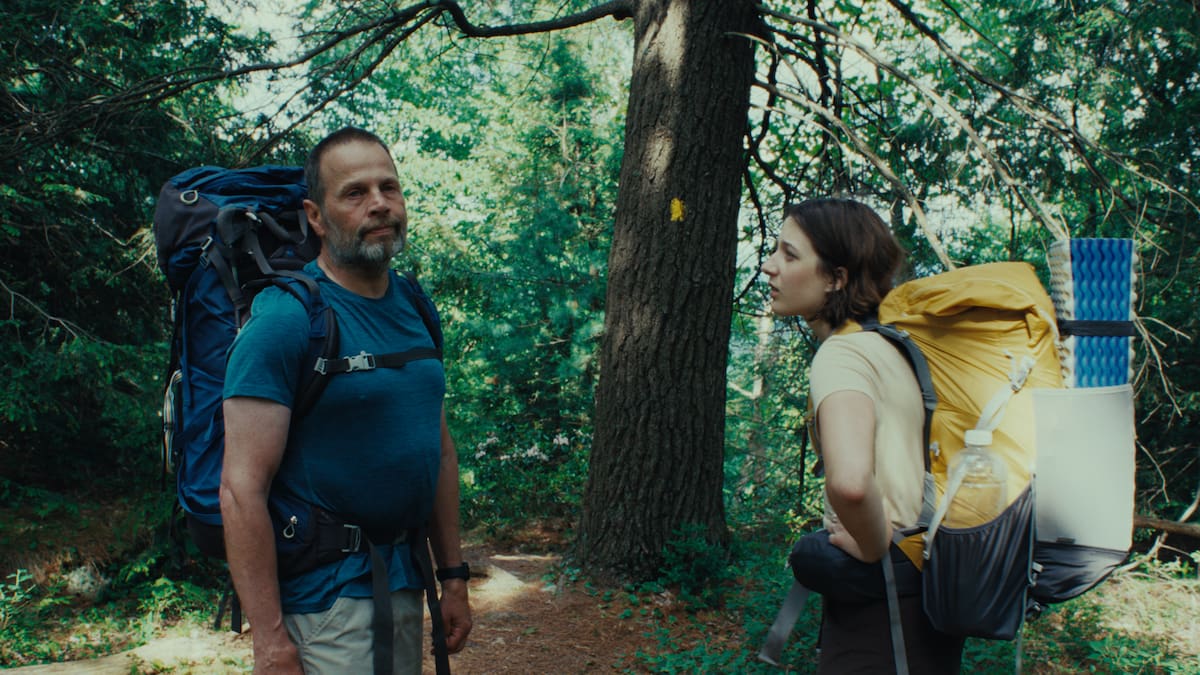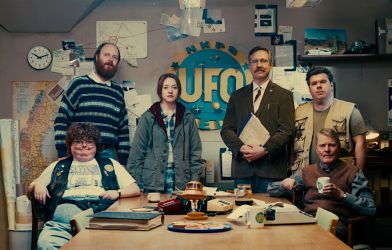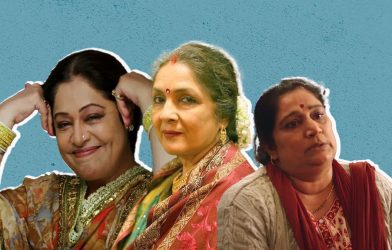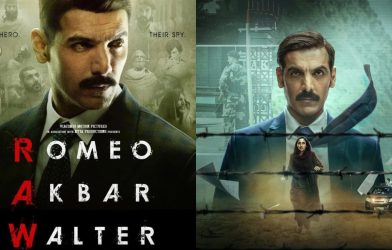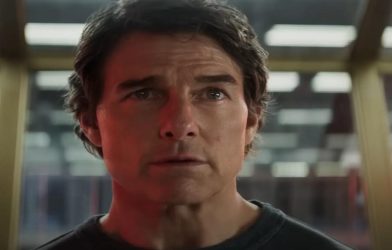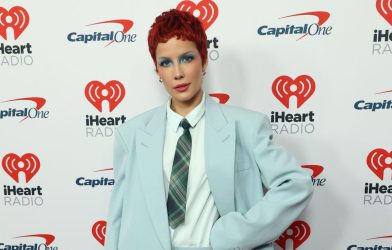Good One, directed by India Donaldson, daughter of legendary Kiwi film director Roger Donaldson (Sleeping Dogs, Smash Palace, No Way Out, Cocktail), is not a horror movie, though I’m sure I’ve made it sound like one.
It’s a poignant, often funny coming-of-age story told over the course of this three-day excursion. The campers were supposed to be a foursome until Chris’ best friend got in a fight with his own teenager, so instead it’s just Sam and these two 50-somethings, in one of the most realistic-feeling portraits of a father-daughter relationship I’ve ever seen on-screen.
Chris (James Le Gros) is, in many ways, an excellent dad. He and Sam (Lily Collias) share a love of the wilderness, and hiking is their thing. He’s obviously crazy about her, which is what makes it even more devastating when something happens – I’m being deliberately vague – and he profoundly falls down on the job.
At a recent preview screening of the film, writer/director Donaldson told the audience that she intended Good One to depict “a permanent reframing” of Sam and Chris’ relationship. One of those moments the pair can’t go back from, so they must figure out what it looks like to move forward.
All along, we thought we were watching Sam come of age. But by the end, we realise we’ve equally been watching Chris as he figures out what it means to succeed and fail as a father.
I could go on and on about just this movie, but I’ll stop and instead encourage you to see it for yourself. It’s arrived at an interesting time, though, in terms of cultural conversations about fathers and their young-adult daughters.
The relationship between Elon Musk and his daughter Vivian is undergoing a sordid and public breakdown, after a 2023 biography attributed Musk’s hard political right turn to Vivian’s coming out as transgender. Vivian recently took to social media to lambaste the biographer for his “humiliating” characterisations, and for treating her as her father’s origin story rather than as her own person.
Comedian Rob Schneider’s daughter publicly cited her father’s “very toxic” views on LGBTQ issues and body image as the reason for their estrangement. Schneider recently apologised via an appearance on Tucker Carlson’s podcast: “I want to tell my daughter, ‘Elle, I love you, and I wish I was the father in my 20s that you needed, and clearly I wasn’t. I hope you can forgive me for my shortcomings’.”
Will she? Can she? What do fathers owe their teenage daughters – and when they inevitably mess up, what do those daughters owe them in return?

Good One wasn’t the only movie to come out recently exploring those themes. On the schlocky, big-box side of things, It Ends With Us is an intimate-partner-violence story disguised as a love story – protagonist Lily (Blake Lively) spends the first half of the movie falling for handsome Ryle (Justin Baldoni) and the second half fearing his next jealous rage.
But beneath both of those, it’s a dad story: As a teenager, Lily witnessed her father abuse her mother. Now, as an adult, she wonders whether witnessing that abuse is what made her susceptible to violence. She fears what kind of romantic relationships she’s setting her own daughter up for if she doesn’t break the cycle. Does it, in fact, end with us?
On the sublime side: Daughters, currently streaming on Netflix, is a documentary about Date with Dad, an organisation that reunites incarcerated men with their children for a daddy-daughter dance in prison.
While the girls worry about what to wear, the men participate in 10 raw sessions of group therapy, working through how to be emotionally present for the daughters they can’t be physically present for. “They want to count on you,” the programme co-ordinator implores the fathers, a reassurance that doubles as a warning: don’t screw this up.
I originally thought that the most painful scene in Daughters came in the beginning when Santana, all of 10 years old, stone-facedly tells the camera that she’s already decided she doesn’t want to get married or have kids – not after watching the pain her father has put her family through.
But I was wrong: the most painful scene comes in the middle, when a 5-year-old named Aubrey spends the dance earnestly reciting multiplication tables to her dad, as if she’s the one who needs to impress him.
Your heart aches for a girl who wants to give up on her father, but it fully breaks for a girl who wants to still hope for him.

What I liked about all three of these films was the weight they gave to fatherhood. The girls, both real and fictional, are observant students of their fathers’ behaviours, even the minute details that the dads might have been wholly unaware of.
Witness Sam’s face, as she watches her father try to show off for some younger male hikers by mentioning that he might take a – clearly fabricated – month-long hike across China. Is he wishing that he, like these young bucks, still had the unfettered freedom to travel as he pleased? Is he regretting his life choices? Chris might not even be aware that his wistful itinerary is masking these questions, but Sam is.
Or witness Aubrey, begging her father to pick her up one more time at the dance, even as he tells her that he’s hot and sweaty. You feel for both of them: Sweat is pouring down Keith’s face, and he’s been picking her up the whole dance. But it’s not that Aubrey doesn’t understand that Keith is tired. It’s that she understands, even more than he seems to in the moment, that once he puts her down, he might never get to pick her up again. He isn’t scheduled to be released until Aubrey is 12.
The fathers in these movies are not caricatures. They are given deserved dignity and complexity – they are humans, doing the best they can in any given moment. They are wondering whether their best is good enough and whether their worst is forgivable.
Toward the end of Good One – this is a spoiler, but less of one than it seems – Chris tosses Sam the car keys, inviting her to drive. He’d previously been reticent to let her behind the wheel, so this act is a peace offering.
It’s also the closest he might ever get to apologising for the way he failed Sam earlier. He’s not merely offering her the keys. He’s pleading with her to take them, as a sign that the two of them are again okay.
A reasonable woman might still agonise over whether to choose a faceless bear over a faceless man during a backwoods encounter. But the job of her father, as Chris comes so close to realising, is to make sure she doesn’t ever have to hesitate when the choice is bear or dad.
Good One and It Ends With Us are in cinemas now. Daughters is available to stream on Netflix

